Resources
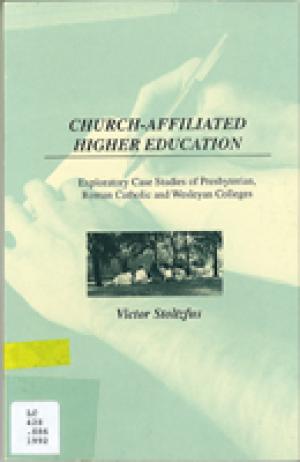
Stoltzfus shows us the pressures on religious colleges towards assimilation into the mainstream, but also shows us the surprising strength of those colleges and the unique ways in which each acts to pass on the living tradition of its faith. (From the Publisher)
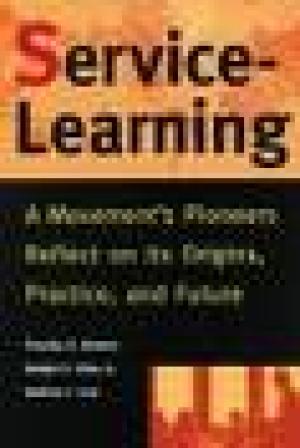
In this fascinating collection of stories, leaders in service-learning describe their early efforts to combine education with social action. Their reflections help construct a pedagogy of service-learning to inspire newcomers and guide program development. The authors assess pioneering experiences and recommend future policy and practice, emphasizing the critical need to preserve an activist commitment as programs become increasingly institutionalized. This highly readable book will assist academic leaders, faculty members, student services professionals, educational researchers, adult educators, and public policymakers who seek a common understanding of the origins, purposes, and objectives of this vital learning initiative. (From the Publisher)
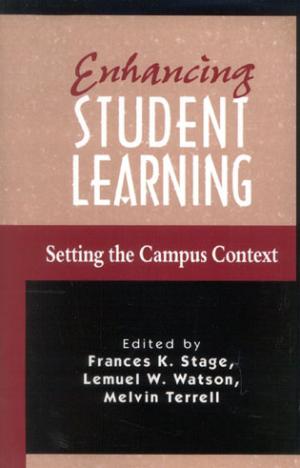
In this important volume, the authors focus on the connections between academic learning and student affairs. Beginning with the premise that academic learning is a critical part of the overall personal development of each student, the authors show how student affairs professionals can work in harmony with their academic colleagues to create a campus milieu that is truly conducive to that development. Such a milieu would offer a rich array of social, athletic, academic, and artistic events, all of which would enrich, enhance, and give deeper meaning to the learning that occurs in the classroom. With its emphasis upon partnership building and interdisciplinary collaboration, this work will be extremely useful to student affairs professionals, college administrators, and faculty members as they work together to design courses and programs that will optimize student learning. Co-published with American College Personnel Association. (From the Publisher)
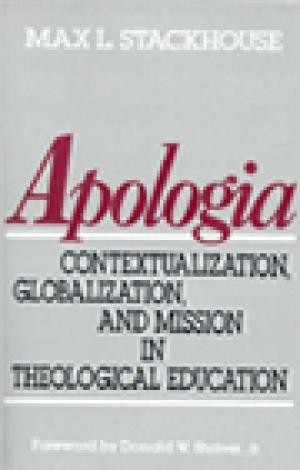
Apologia is about contemporary theological education--its current state and its future. While many current trends in seminaries and departments of theology bring important new insights to the study of religion, says Max Stackhouse they also erode-- sometimes unwittingly--the capacity to speak of God, truth, and justice with warranted confidence. Theology is thereby undermined in all arenas--not only in academia, but in the life of the church and society. This book not only exposes the frailties of several current ideologies, but also draws noted scholars from five continents and a seminary faculty into an interdisciplinary discussion of the most significant recent literature on theological education. The results are fresh proposals for the reconstructing of theological education on foundations that are contextually alert, globally concerned, and mission-oriented. Apologia is a ground-breaking work, a book that begins and ends in dialogue, and points toward the ways in which Christian theology will have to redefine itself if it is to actively shape, and not merely reflect, the context in which we live. (From the Publisher)
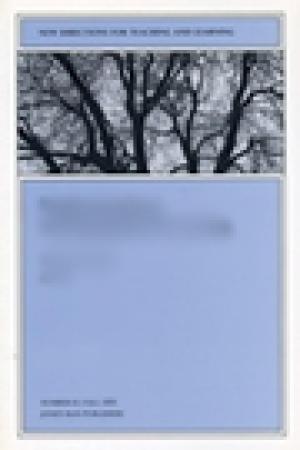
This volume offers a practical compendium of advice on how to foster the career development of new and junior faculty. It is organized around three main themes: research findings concerning new and junior faculty, model programs and strategies to support faculty development, and organizational factors that affect both the success of the strategies and the experiences of new and junior faculty. Whether readers are junior faculty, senior colleagues, faculty developers, or academic administrators, all can learn how to create more supportive and stimulating environments for the newest members of their academic communities. (From the Publisher)

This monograph presents results and recommendations from a project designed as a collaborative effort to prepare graduate students in the humanities for careers as scholar-teachers within institutions committed to liberal education. The project's two principle activities are discussed under the following headings: (1) Encountering Campus Cultures: Discovering the Responsibilities of College Teachers; and (2) Seminars: Reflecting on the Responsibilities of College Teachers. The first of these activities involved the Teaching Fellows in campus visits during which they attended department and faculty meetings, observed and sometimes taught classes, and met with individual faculty members who assumed mentoring roles and with whom every aspect of the campus, cultural, career and professional life of the college teacher could be explored. The second activity provides the Teaching Fellows with an opportunity to reflect on what they learned at the colleges and involves two kinds of seminar: (1) the core seminar, which brings the experience of contact/encounter into the structure of graduate training; and (2) the disciplinary seminar, which focuses on the connection between scholarly work and teaching, helps prepare the graduate students within their disciplines, and serves as a means of reimagining and restructuring the graduate programs themselves. Findings show that doctoral students, if given the chance, are eager to engage in the work of academic leadership, even at the beginning of their careers and that a major factor in enhancing their willingness to assume an active role is their encounters with college faculty members. Several recommendations are offered and discussed for future consideration. These are: (1) that coalitions should be built to promote reform; (2) that graduate training must include preparation for the full range of professional responsibilities, especially teaching; (3) that support and incentives should be built for participation of graduate educators in these reform efforts; and (4) that alternative, especially collaborative, models should be developed for improving graduate preparation. (From the Publisher)

This volume of New Directions for Teaching and Learning makes the knowledge and skills of academic specialists available to subject-area faculty who deal with the writing and oral communication styles of non-native users of English in their classrooms. The chapters offer information and much-needed advice in nontechnical language about ways to help these students improve their writing and speaking skills in content-area courses. The volume also considers the points of view of the students themselves and discusses their differing levels of intent about becoming proficient in English writing and speaking. The authors are specialists from institutions of higher education across the United States, and their academic fields included English as a Second Language, composition theory, editing, technical editing, interpersonal communication, oral communication, and linguistics. Faculty, especially those involved in writing-across-the-curriculum programs, will find this an invaluable help in dealing with the writing aspects of their courses, and those in charge of faculty development activities will particularly welcome this volume for use in their seminars. This is the 70th issues of the journals New Directions for Teaching and Learning. For more information on the series, please see the Journals and Periodicals page. (From the Publisher)
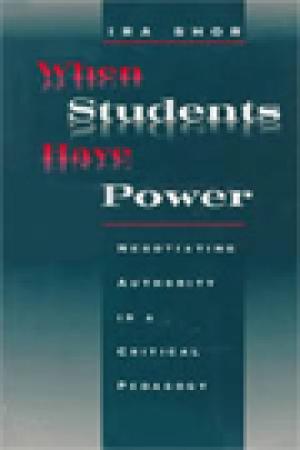
What happens when teachers share power with students? In this profound book, Ira Shor--the inventor of critical pedagogy in the United States-- relates the story of an experiment that nearly went out of control. Shor provides the reader with a reenactment of one semester that shows what really can happen when one applies the theory and democratizes the classroom. This is the story of one class in which Shor tried to fully share with his students control of the curriculum and of the classroom. After twenty years of practicing critical teaching, he unexpectedly found himself faced with a student uprising that threatened the very possibility of learning. How Shor resolves these problems, while remaining true to his commitment to power-sharing and radical pedagogy, is the crux of the book. Unconventional in both form and substance, this deeply personal work weaves together student voices and thick descriptions of classroom experience with pedagogical theory to illuminate the power relations that must be negotiated if true learning is to take place. (From the Publisher)

Throughout his long and prolific career, Edward Shils brought an extraordinary knowledge of academic institutions to discussions about higher education. The Calling of Education features Shils's most illuminating and incisive writing on this topic from the last twenty-five years of his life. The first essay, "The Academic Ethic," articulates the unique ethical demands of the academic profession and directs special attention to the integration of teaching and research. Other pieces, including Shils's renowned Jefferson lectures, focus on perennial issues in higher learning: the meaning of academic freedom, the connection between universities and the state, and the criteria for appointing individuals to academic positions. Edward Shils understood the university as a great symphonic conductor comprehends the value of each instrument and section, both separately and in cooperation. The Calling of Education offers Shils's insightful perspective on problems that are no less pressing than when he first confronted them. (From the Publisher)
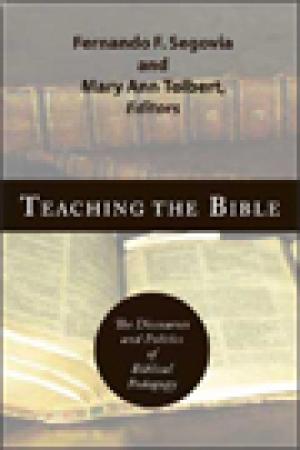
This volume gathers together papers from a broad variety of voices in biblical criticism and theological studies. The papers are divided into four major sections in keeping with their major concerns and aims: Biblical interpretation and theological education, social location and Biblical pedagogy in the US, social location and Biblical pedagogy in global perspective, and Biblical interpretation. (From the Publisher)